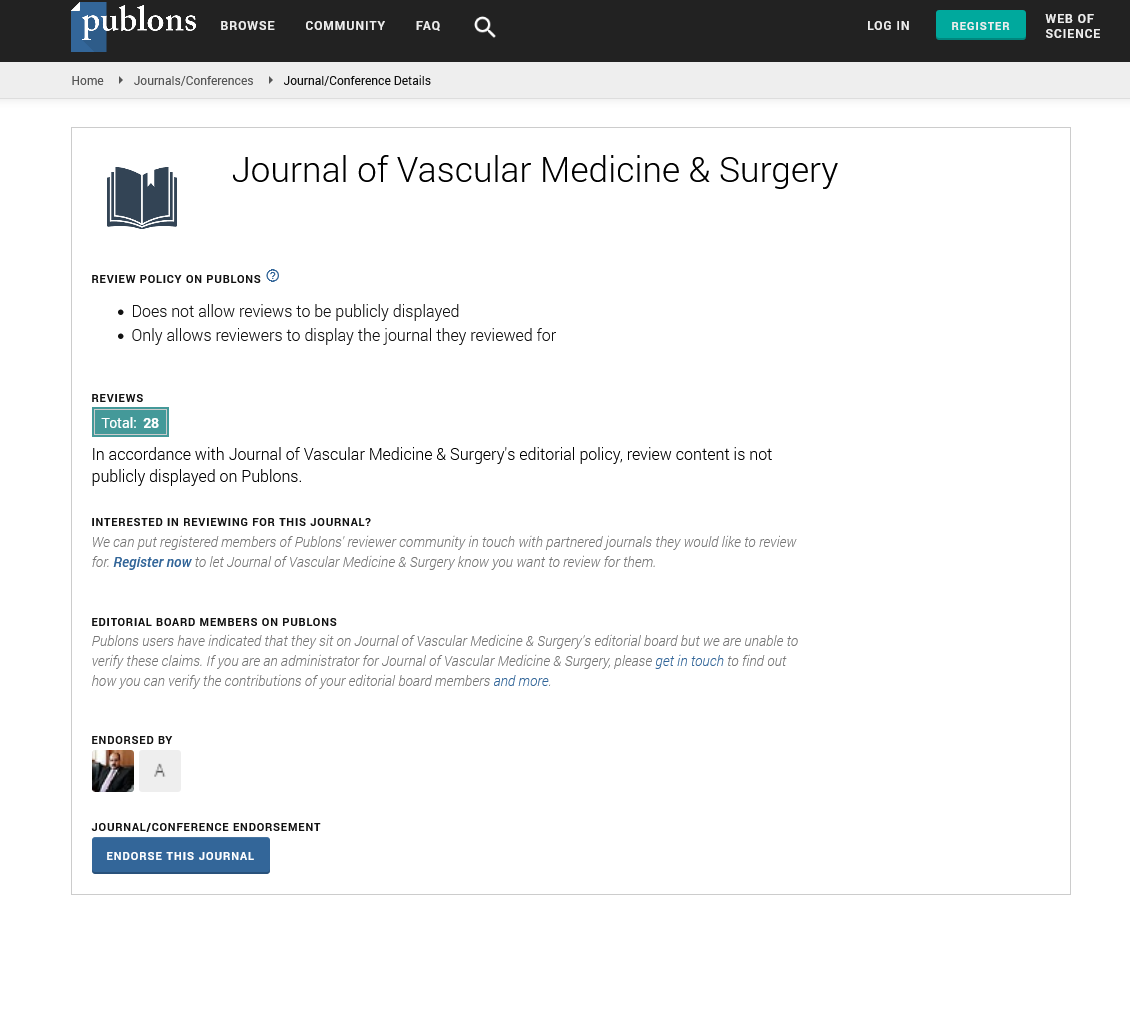Indexed In
- Open J Gate
- Academic Keys
- RefSeek
- Hamdard University
- EBSCO A-Z
- OCLC- WorldCat
- Publons
- Euro Pub
- Google Scholar
- SHERPA ROMEO
Useful Links
Share This Page
Journal Flyer

Open Access Journals
- Agri and Aquaculture
- Biochemistry
- Bioinformatics & Systems Biology
- Business & Management
- Chemistry
- Clinical Sciences
- Engineering
- Food & Nutrition
- General Science
- Genetics & Molecular Biology
- Immunology & Microbiology
- Medical Sciences
- Neuroscience & Psychology
- Nursing & Health Care
- Pharmaceutical Sciences
Indices of aortic function: Should pulse wave velocity be the only index of aortic function used to predict risk?
World Congress on Vascular Diseases, Medicine & Surgeons Summit
October 24-25, 2016 Chicago, USA
Angela Jill Woodiwiss
University of the Witwatersrand, South Africa
Scientific Tracks Abstracts: Vasc Med Surg
Abstract:
Aortic pulse wave velocity (PWV) is the current gold standard noninvasive measurement of arterial stiffness. However, data identifying the possible mechanisms which may explain the relationship between PWV and cardiovascular outcomes are limited. In this regard aortic PWV may index the impact of chronic inflammation on the cardiovascular system. Indeed, we have shown that galectin-3, a pro-fibrotic inflammatory substance and the adipokine resistin, but not alternative adipokines, are associated with PWV independent of blood pressure (BP), insulin resistance and general inflammation. However, we have also demonstrated that inflammatory changes may not account for aging effects, as indexed by telomere length, on aortic PWV and hence alternative biological effects require elucidation. Moreover, the value of PWV may be limited in some circumstances. Indeed, in advanced peripheral vascular disease PWV may be markedly reduced. In this regard, several alternative indexes of aortic function may nevertheless be of value in risk predicting and these effects may not be explained by an impact of PWV. Indeed, central aortic pulse pressure (PP) and aortic-to-brachial PP amplification (PPamp), which may be determined by an increased salt intake and alternative effects on aortic backward wave function, have been associated with cardiovascular endorgan changes and outcomes beyond brachial BP, and these changes may not be attributed to increases in PWV. As aortic PP and PPamp may be imputed from simple clinical measures, and imputed PPamp is associated with end-organ changes and allcause mortality beyond brachial BP, PPamp may be an important cost-effective method of risk predicting beyond aortic PWV.
Biography :
Angela Jill Woodiwiss is an ad Hominem Full Professor in the School of Physiology and Co-Director of the Cardiovascular Pathophysiology and Genomics Research Unit at the University of the Witwatersrand. She has over 150 original publications, 68% of which are in leading international journals in the cardiovascular field. Her publications have emanated in a total of 3547 citations and have h index of 35. Eleven of her publications have generated editorial commentaries in prestigious cardiovascular journals. She completed her PhD (Cardiovascular Physiology) in 1995 at University of the Witwatersrand and a Post-doctoral fellowship at University of Massachusetts in 1997.
Email: angela.woodiwiss@wits.ac.za

